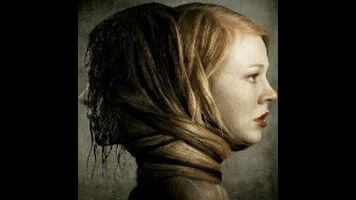Jessabelle starts out scary but quickly gets waterlogged

One of the nice things about Jessabelle is that it isn’t trying too hard. It’s a perfect example of a horror movie for whom a PG-13 or an R rating is irrelevant, because it relies on creeping dread rather than brutal violence to scare its audience. Director Kevin Greutert is presumably hoping to break free from his torture-porn past (he directed both Saw VI and Saw 3D: The Final Chapter) by directing a slow-burn psychological horror movie, and acquits himself admirably in that respect. There isn’t a single jump scare in this thing. On the other hand, it would be nice if Jessabelle tried a little harder.
That may seem contradictory, but while Jessabelle puts plenty of effort into atmosphere—the swampy greens and warm sunny yellows from cinematographer Michael Fimognari are a nice touch—none of that matters when the twists and turns aren’t especially creative. The standalone horror scenes are creepily effective, but thoughtfully done or not, the screenplay, written by comedian Robert Ben Garant, is ultimately a by-no-means-groundbreaking haunted house story with a Southern gothic twist (there’s even a burned-down church with occult significance like on True Detective).
We open on our heroine, Jessie (relative newcomer Sarah Snook), leaving her apartment on her way to move in with her boyfriend. He and their unborn child are killed in a dramatic car crash immediately afterward, and temporarily paralyzed and with nowhere else to go, Jessie returns to her rural Louisiana hometown to recuperate. When she arrives, her estranged father, Leon (David Andrews), tells Jessie she can stay in her dead mother’s room, and the mere mention of her name evokes both sadness and dread. The supernatural occurrences start right away, but intensify when Jessie discovers a box of VHS tapes recorded by her mother, Kate (Joelle Carter), shortly before she died. On the first tape, Kate reads her unborn daughter’s tarot cards, a seemingly innocent exercise that takes a turn for the frightening when Kate declares that there is an unwanted presence in the house.
Leon is angry when he catches Jessie with the first tape, but when he comes home to find her watching Kate’s second, much more accurate reading, he freaks out and takes the tapes outside to burn them, burning himself to death in the process. Enter Jessie’s (married) high school boyfriend, Preston (Mark Webber), who is still clearly in love with her. Eager to do anything she asks, he helps Jessie explore the family property, where they dig up a coffin containing the skeleton of a newborn. This is where Jessabelle is at its most intriguing, and also where it starts to level out. Obviously there are some dark family secrets at play, but in the process of discovering them the movie loses momentum, rendering the final revelation more of an “oh” than an “oh my God!”
Despite a couple of minor-but-puzzling details late in the film, Jessabelle is well thought out, and like the recent Housebound, provides a logical solution to the classic smartass question: If the house is haunted, why doesn’t Jessie just leave? Well, she can’t walk, for one thing, and everyone who could (rather literally) help her get out of there is methodically eliminated, until Jessie is forced to face her (also rather literal) demons. It’s this methodical quality that is Jessabelle’s downfall—the film is so intent on tying up loose ends that it gets distracted from turning the screws on the viewer and wanders off into a mediocre romance between reunited high-school sweethearts.
The boring parts of Jessabelle would be easily forgiven were it not for the fact that its themes and imagery are all so… expected. A key scene takes place in a bathtub, for example, which every horror fan knows means a drowned woman with long, tangled hair is soon to follow. (In her defense, Amber Stevens gives a feral and physically intense performance as the one-dimensional Dead Girl.) Leaving the theater, viewers may find themselves haunted by disappointment, not because Jessabelle lacks gore or cheap shocks, but because it fails to deliver on the promise of the deft tension-building in its opening scenes.